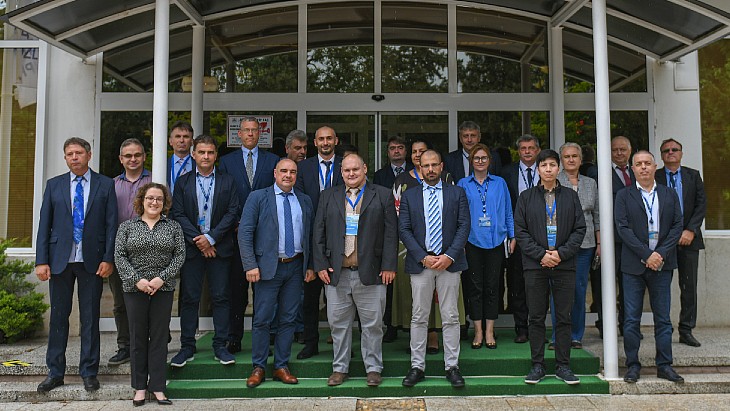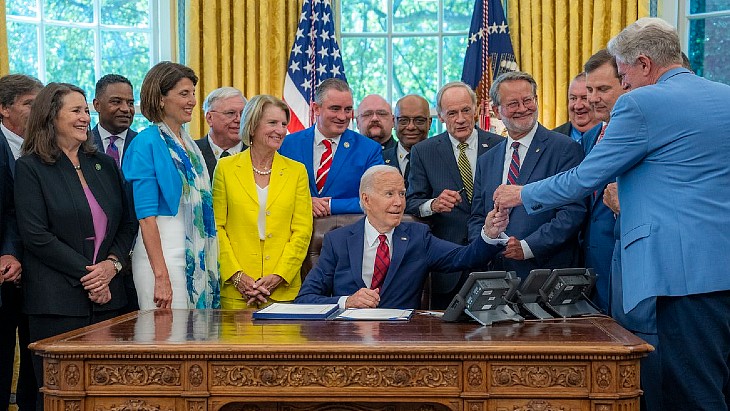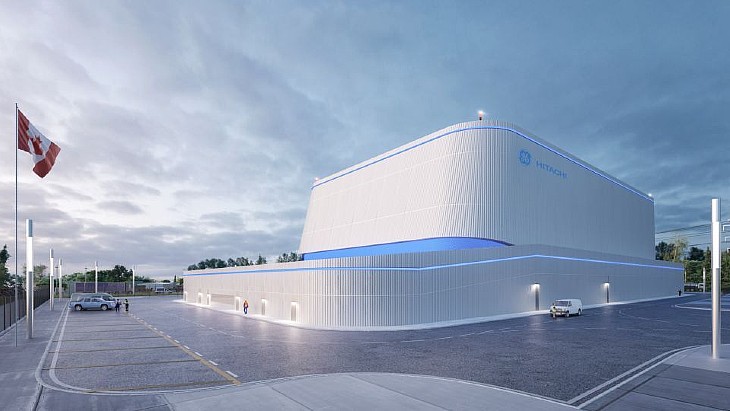IAEA praise for Kozloduy LTO safety actions

The visit, from 13-15 June, was requested by the Bulgarian government and reviewed actions taken in response to recommendations made during the agency's SALTO mission in 2021.
Units 5 and 6 at Kozloduy - 1000 MWe pressurised water reactors - went into commercial operation in 1987 and 1991 and have had their licences extended, for an initial 10 years, until 2027 and 2029. Long Term Operation (LTO) is defined as operation beyond the original licence timeframe.
The leader of the IAEA team, senior nuclear safety officer Gabor Petofi, said: "The team observed that the operator has completed all major actions to safely operate the reactors in the LTO period. Based on its efforts on recommendations made by the SALTO team in 2021, the plant has made significant improvements in the area of ageing management. The team found that these activities are consistent with IAEA Safety Standards for safe long-term operation."
The IAEA experts said the plant had finished the ageing management review for mechanical components and cables, completed the requalification programme for safety-related electrical and cables components and had "analysed the situation related to human resources for the intended period of LTO and extended the human resources policy and strategy accordingly"
However further work was necessary to ensure that the new ageing management programmes developed for mechanical components and cables are properly implemented.
Andrey Krasnocharov, Deputy CEO of Kozloduy NPP, said: "For us, this is the final step of the IAEA’s supporting service to ensure safe operation of our reactors in the LTO period. The IAEA SALTO missions and technical cooperation helped to improve our continued focus on safe operation. We have worked together with the IAEA for the past eight years carrying out four missions and several technical discussions. We appreciate the IAEA’s support of our plant in managing ageing and preparation for safe LTO, and we will continue to improve our processes to further comply with IAEA Safety Standards."
The IAEA safety standards say that to "maintain a plant’s fitness for service, consideration should be given to life limiting processes and features of systems, structures, and components, as well as to reasonably practicable safety upgrades to enhance the safety of the plant to a level approaching that of modern plants".
At the end of the visit the SALTO mission team provided a draft report to the plant management, who have the chance to make factual comments before a final report is submitted to the Bulgarian government and Nuclear Regulatory Agency within the next three months.
The Kozloduy plant is in the northwest of Bulgaria on the Danube River and provides about 34% of the country's electricity.
Kozloduy units 1-4 were VVER-440 models which the European Commission had classified as non-upgradeable and Bulgaria agreed to close them down during their negotiations to join the European Union in 2007. Units 5 and 6 feature VVER-1000 reactors that have been through refurbishment and life extension programmes to enable extension of operation from 30 to 60 years, which would take them up to 2047.
In December last year, Westinghouse signed a 10-year agreement to supply fuel to Kozloduy unit 5 from 2024. The contract followed a vote by Bulgaria's National Assembly the previous month for an acceleration of the process of securing an alternative to Russia as supplier of nuclear fuel. An agreement signed with Framatome in January sets out the schedule of future negotiations and the conclusion of a contract for the supply of fuel for unit 6. The two parties will conclude a contract for up to 12 recharges for the period 2025-2034 inclusive.
Energy Minister Rossen Hristov in January set out an energy strategy for 2023 to 2053 for Bulgaria, which includes plans for two new reactors at Kozloduy and two at Belene where a project to construct two VVER-1000 units was suspended in 2012.










_88592.jpg)

